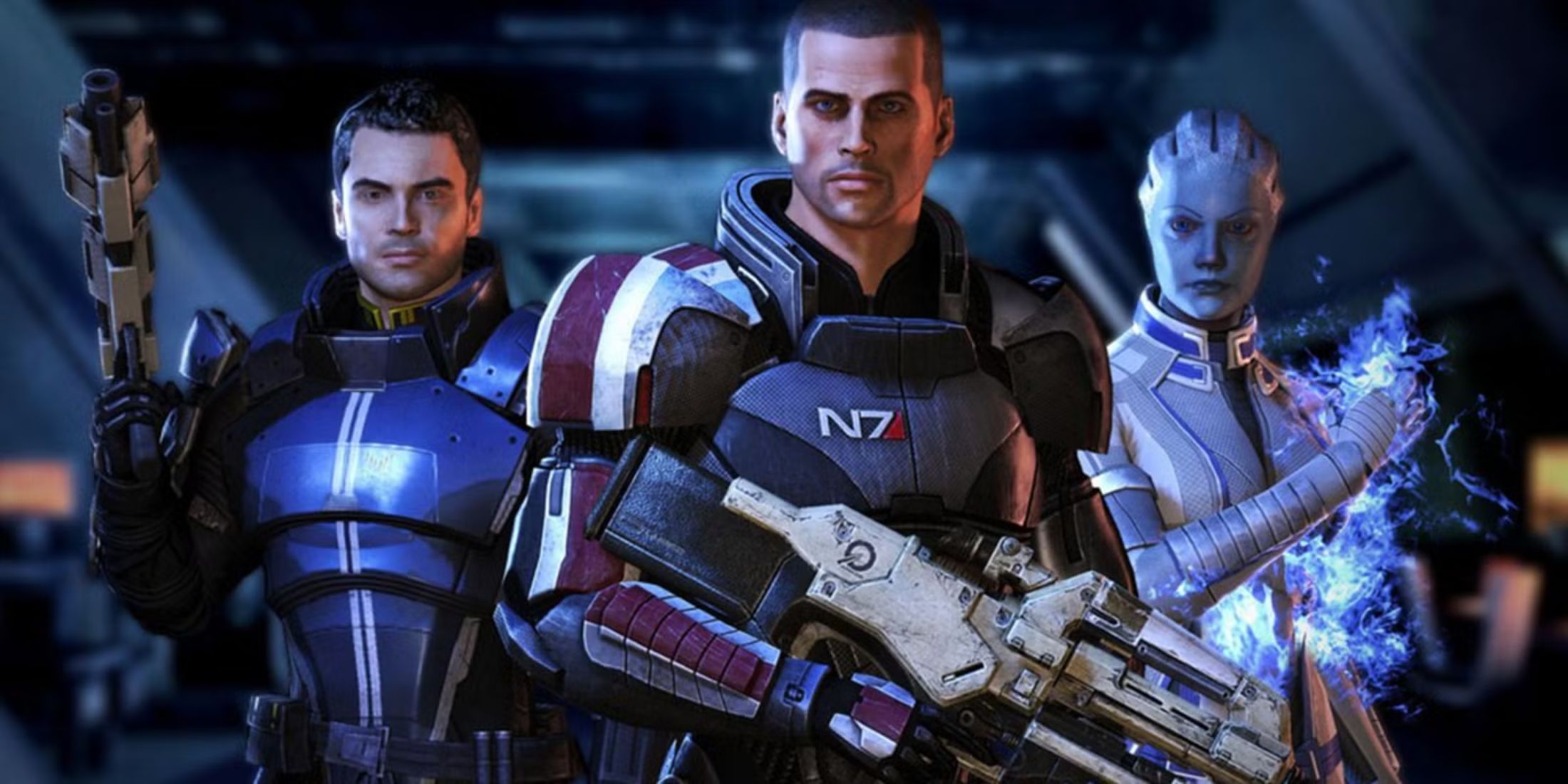RPGs That Start Slow But Become Masterpieces
Description

Summary
- RPGs like Mass Effect, NieR: Automata & Final Fantasy Tactics start slow, building rich lore and character depth for rewarding climaxes.
- Games like The Legend of Heroes: Trails in the Sky FC & Xenoblade Chronicles 2 demand patience for dramatic narrative transformations.
- Kingdom Come: Deliverance exemplifies slow starts in RPGs, turning mundane beginnings into rewarding journeys of mastery.
In the world of RPGs, many games grab players from the first second with explosive action and instant drama. But a special class of role-playing games takes a radically different approach, embracing the slow burn. These games don’t just test players’ patience; they reward them tenfold with incredibly rich world-building, deeply layered character arcs, and unforgettable narrative payoffs that hit harder because of the quiet hours invested upfront.
Investing these early, quiet hours transforms the story’s eventual climax into something genuinely special. That’s the difference between a summer blockbuster and an epic novel; one gives a quick thrill, while the other builds a world so detailed and characters so real that players might never want to say goodbye to them. So, here are RPGs that transform their slow beginnings into legendary finales and prove that greatness comes from savoring the journey.
Mass Effect
The Slow Politics Of Saving The Galaxy
Mass Effect kicks off with a bang on Eden Prime, a tight, action-heavy introduction to Commander Shepard and the synthetic geth. But after this initial sprint, the game hits the brakes hard. Players are summoned to the Citadel, the galaxy’s political heart, and the sci-fi shooter abruptly transforms into a sprawling, dialogue-heavy investigation. The main goal is to prove that the Council’s top agent, Saren, is a traitor, but with little proof, players are forced to navigate bureaucratic red tape and run errands across the massive station.
The game’s masterpiece transformation happens on the planet Virmire. It’s here that the narrative stakes explode. Shocking revelations about the Reapers and Saren’s indoctrination shift the conflict from a hunt for a rogue agent to a desperate war against a cosmic horror. The beauty of Mass Effect’s slow start is that it lays a foundation of lore, character, and consequences. By the time the galaxy is on the line, every decision feels personal and crucial.
NieR: Automata
Existential Drama Beyond The First Ending
NieR: Automata’s opening is a kinetic thrill ride, but that pace is misleading. After the fireworks, players are left to wander a melancholic, semi-open world and grind through repetitive side quests. The real test comes after Ending A, when the game asks for a full replay with Route B, covering much of the same ground from another perspective. However, the game’s true transformation comes much further toward Ending B.
What follows, Route C, is not a repeat but a direct continuation of the story, and it’s here that NieR: Automata blossoms into a philosophical masterpiece. The plot’s scope expands exponentially with devastating twists about the purpose of the war, the nature of the machines, and humanity’s true fate. The story hurtles toward its ultimate conclusion, Ending E, a transcendent, fourth-wall-breaking experience that cements the game as one of the most unique and powerful stories ever told.
Final Fantasy Tactics
A Political Thriller Hidden In A Grind
Final Fantasy Tactics is as brutal in its pacing as it is in its turn-based battles. Early missions are a harsh gauntlet, with players often hitting a wall at infamous fights like the Dorter Slums. New players can feel stuck—grinding for hours, rewatching unskippable cutscenes, and learning harsh lessons about positioning and planning.
But around Chapter 2, the clouds part. The Job System opens wide, granting access to advanced classes and combos, and the narrative unfurls into one of gaming’s great political epics. Suddenly, what felt like a grind is revealed as a crucible, for those who master the systems are rewarded with near-limitless customization and a story loaded with betrayal, ambition, and tragic heroism.
The Legend Of Heroes: Trails In The Sky FC
A Legendary Payoff To An Unassuming Start
The Legend of Heroes: Trails in the Sky FC is the definition of a slow-burn RPG, demanding huge patience for a payoff of incredible scale. The story begins with incredibly low stakes, following protagonists Estelle and Joshua Bright on their journey to become Senior Bracers, members of a civilian peacekeeping guild. The pacing is deliberately unhurried, focusing on long stretches of dialogue as the duo travels across the Kingdom of Liberl.
The game’s transformation is a sudden, narrative explosion in the final chapter. After dozens of hours of seemingly disconnected local problems, the plot threads violently converge, revealing a massive conspiracy orchestrated by the secret society Ouroboros. This re-contextualizes the entire game. The climax delivers a series of shocking revelations, culminating in one of the most legendary cliffhanger endings in RPG history.
Xenoblade Chronicles 2
Tutorials, Titans, And The Long Road To Elysium
Xenoblade Chronicles 2 is a massive, complex JRPG, and its opening hours are quite overwhelming. Combat seems slow and confusing, menus sprawl out endlessly, and even navigating the map can feel like its own challenge. For the first 20 hours or so, it’s not uncommon for players to wonder what all the fuss is about. Around Chapter 3, once a full party is assembled, the seemingly disconnected combat mechanics begin to interlock like gears in a well-oiled machine.
The story, too, shakes off its early stumbles and begins delivering the kind of heartfelt character moments and wild plot twists that fans expect from the series. In the end, Xenoblade Chronicles 2 is a marathon, not a sprint. The first hours test patience, but those who persevere discover one of the most rewarding battle systems and emotional narratives in the modern RPG canon.
Divinity: Original Sin 2
When Freedom Feels Like Confusion
The game starts by stranding the player, a persecuted magic-user known as a Sourcerer, on the prison island of Fort Joy. The Fort Joy area is dense, difficult, and notoriously opaque, with little guidance and plenty of ways to get outmatched fast. It’s easy to feel lost, underpowered, and overwhelmed by the sheer number of systems at play.
The transformation comes when players finally escape Fort Joy. By then, they’ve learned the ins and outs of the turn-based combat, environmental interactions, and creative solutions that make the game sing. Overcoming Fort Joy’s chaos isn’t just a gameplay hurdle—it’s the moment players master the systems and the world truly opens up to them.
Kingdom Come: Deliverance
From Medieval Mundanity To Mastery
Kingdom Come: Deliverance features perhaps the most thematically brilliant slow start in RPG history. The protagonist, Henry, is a blacksmith’s son who is incompetent at everything. The opening hours are an exercise in mundane medieval life: running errands, collecting debts, and losing tavern brawls. But this relentless realism is by design. As Henry learns, so does the player.
The turning point is the slow realization that Henry is no longer helpless, a feeling that often begins after he receives formal combat training from Captain Bernard. By the time Henry rises to knighthood, the sense of progression is unlike anything else in RPGs. The game is the ultimate patience-testing RPG, rewarding those who embrace its historical simulation with a journey that transforms powerlessness into hard-won mastery.




